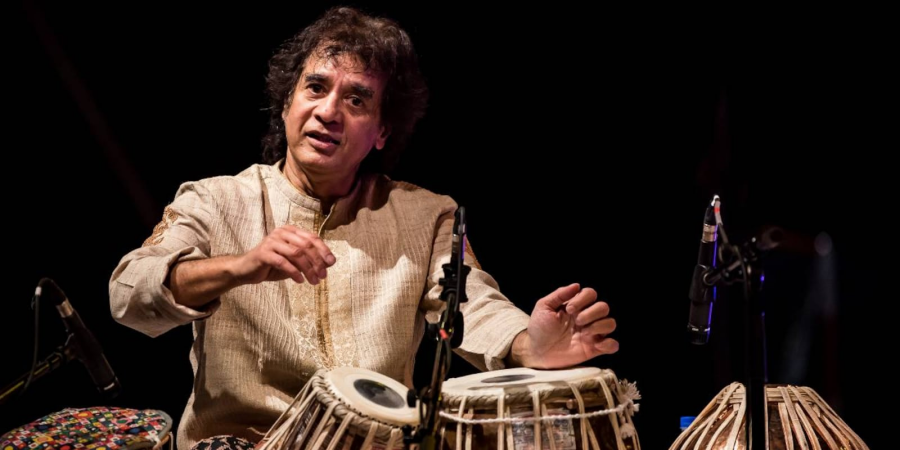

Zakir Hussain, one of the most celebrated and iconic tabla players in the world, is a name synonymous with musical brilliance, rhythm, and innovation. Born on March 9, 1951, in Mumbai, India, Zakir Hussain carried forward the legacy of Indian classical music to a global stage with extraordinary skill, creativity, and versatility.
Zakir Hussain was born into a family deeply rooted in music. His father, the legendary tabla virtuoso Ustad Alla Rakha, was a pioneer who elevated the tabla to its modern status. Under his father's strict yet nurturing guidance, Zakir Hussain began learning the tabla at a very young age. By the time he was in his teens, Zakir was already being recognized as a prodigious talent.
He attended St. Michael’s High School in Mumbai and later pursued his studies at St. Xavier’s College. Despite his academic pursuits, music was always his true calling.
Zakir Hussain’s performances became widely appreciated during the late 1960s and early 1970s. He gained international recognition by collaborating with a range of artists and exploring multiple genres, including Indian classical, jazz, and world music. His first significant global exposure was alongside Ravi Shankar and his father Alla Rakha.
In 1970, he moved to the United States to teach and further spread Indian classical music, eventually becoming a cultural ambassador for Indian music. Zakir Hussain’s mesmerizing rhythms, combined with his vibrant stage presence, earned him accolades from audiences around the world.
Indian Classical Music:
Zakir Hussain is regarded as one of the finest tabla players in the history of Indian classical music. He has collaborated with greats such as Pandit Ravi Shankar, Ustad Ali Akbar Khan, and Shivkumar Sharma. His exceptional ability to accompany instrumentalists and vocalists alike sets him apart.
Cross-Cultural Collaborations:
Zakir Hussain’s work transcends genres. He was part of John McLaughlin’s Shakti, a fusion band that blended Indian classical music with jazz. The group introduced the world to the beauty of rhythmic improvisations and cross-cultural experimentation.
He also collaborated with Mickey Hart of the Grateful Dead, forming the Planet Drum project, which won a Grammy Award in 1992 for "Best World Music Album." This was a groundbreaking achievement as it brought percussion instruments from various traditions to a global platform.
Film and Composition:
Zakir Hussain has composed music for several films, including the critically acclaimed movies "In Custody" and "The Mystic Masseur". He has also performed for soundtracks of Hollywood and Bollywood films, including Richard Attenborough’s "Gandhi".
Innovations and Teaching:
As an educator, Zakir Hussain had mentored countless musicians. He served as a visiting faculty member at prestigious institutions such as Stanford University and UC Berkeley. His emphasis on blending tradition with innovation has kept the art of tabla alive for newer generations.
Zakir Hussain’s contributions to music have earned him numerous accolades, including:
Despite his global fame, Zakir Hussain remained deeply connected to his roots. His humility and charm reflected his reverence for music and his heritage. Married to Antonia Minnecola, a Kathak dancer and teacher, Zakir had managed to build a family that continues to appreciate and promote art.
Zakir Hussain’s music was not just about rhythm; it is about storytelling. His tabla spoke a language of its own, evoking emotions, weaving intricate tales of life, and transcending cultural boundaries.
Zakir Hussain had redefined the role of the tabla, taking it from being a supporting instrument to a central figure in global music. His contributions to Indian classical music, fusion, and world music have inspired millions of musicians and music lovers. His legacy will continue to influence future generations, ensuring that the magic of the tabla remains eternal. Zakir Hussain stands not just as a musician but as an artist who has bridged cultures through rhythm and passion.
